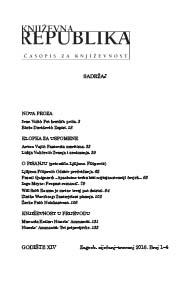
Apsolutno treba biti najtajanstveniji čovjek
Interview with Pascal Quignard by Vincent Landel
More...We kindly inform you that, as long as the subject affiliation of our 300.000+ articles is in progress, you might get unsufficient or no results on your third level or second level search. In this case, please broaden your search criteria.

Interview with Pascal Quignard by Vincent Landel
More...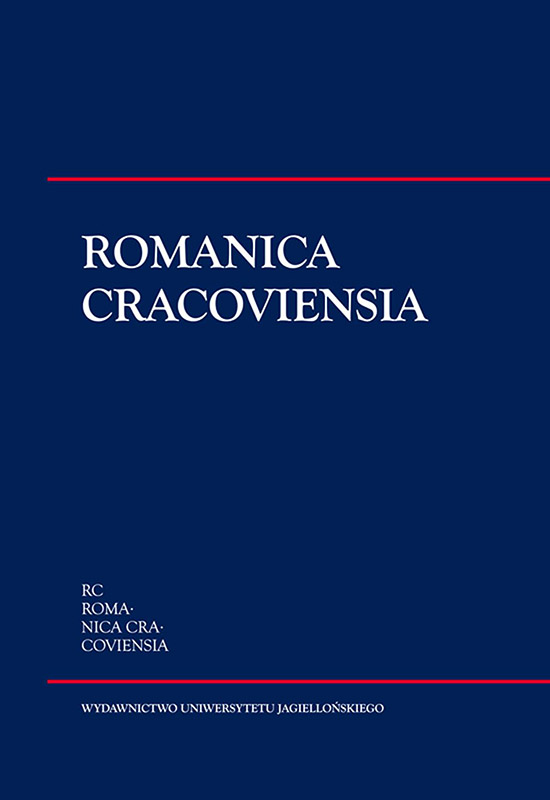
The metaphysical idea of “nature” is one of these tuning ideas of the philosopher of the Enlightenment, Rousseau. On one side, we see the romantic and wild picture of nature, like “the ocean, the mountains, the rocks, the waterfalls”, on the other side there is nature tamed by the humans. The mountain’s soul looked like phenomenon of unexpected (something which surpasses the expectations and reveal the dramatized, restless nature), is something which escapes its being (in the metaphysical sense) and which confronts this soul in a kind of terror. Also we underline that the sublime of the mountain provokes some sort of terror. The push of Rousseau’s thought shows nature as an association with the state of the soul within an internal experience. We can conclude that the “polarity of the subjective – (emotional) inner and of the objective external (the natural world)” opens the possibility to question this dispute.
More...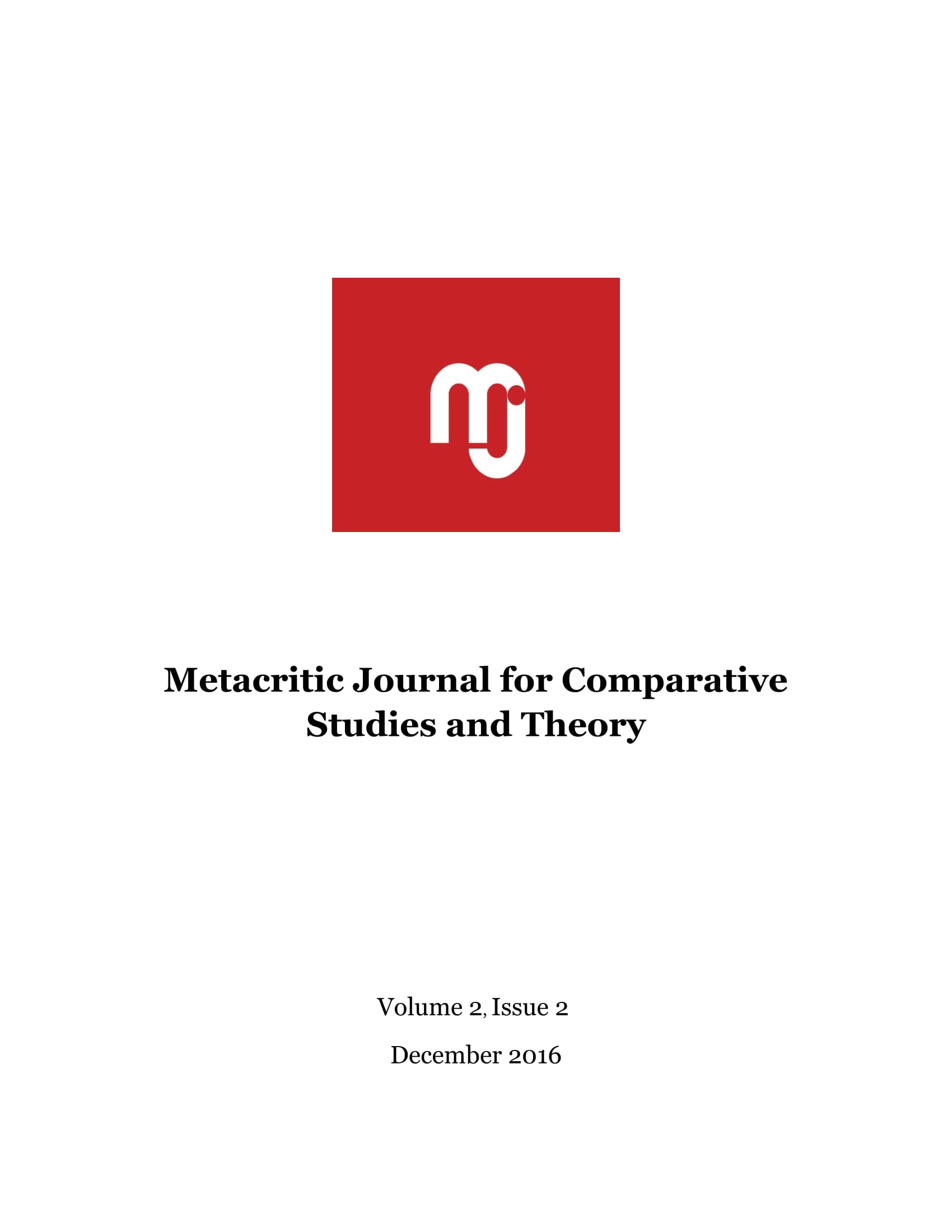
The current paper aims to illustrate how Michel Houellebecq's prose revolves around the failure of otherness. His character, always male, is in search of indemnifying options to rebuild the connections that have been suddenly interrupted, such as miscarriages or losing partners due to suicide. At first sight, the woman's figure naturally meets these requirements. Otherness is being reduced to a barren body, that acts as an extension of the traditional female role: woman as an erotic partner and maternal figure. The inability to communicate, the split between the two above-mentioned fixed roles leads to the abnegation of the self while failing to be defined through otherness. My thesis will argue that Houellebecq's prose grows as a fiction of otherness: excessively eroticised bodies that impel communication, dispersed families by repudiation of sons as feasible otherness, artificial heroes, either orphans or abandoned, incapable of exceeding their own individuality, replace the claim for the heroic in contemporary French writing.
More...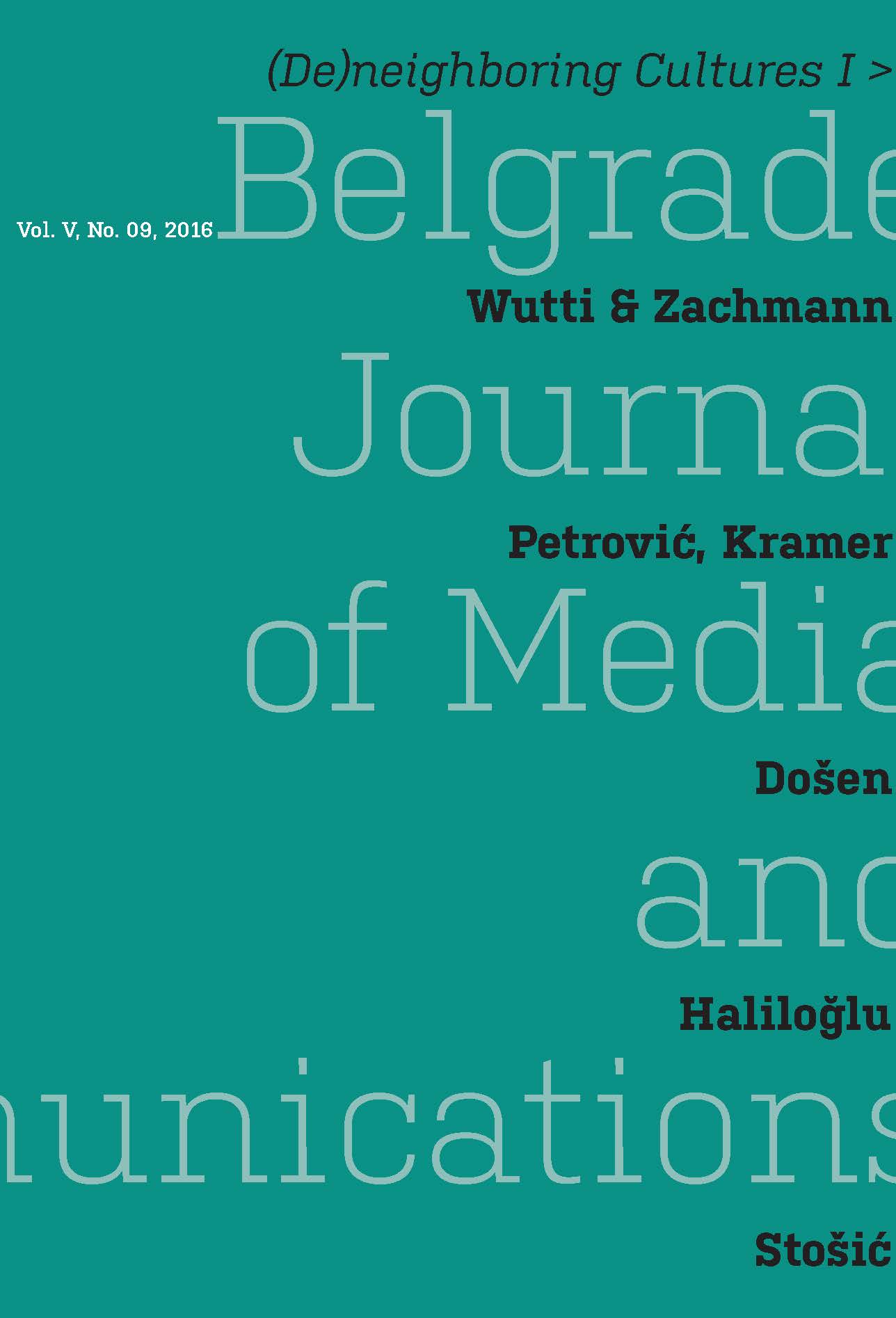
This paper explores the meanings that the Mediterranean,the sea and the region, takes on in Michel Houellebecq’s novels ThePossibility of an Island (La Possibilité d’Une Ile) and Submission(Soumission). I argue that Houellebecq’s narrators have a complex relationshipof dependency and disgust concerning the Mediterranean.This attitude stems from the fact that the narrators are often at a loss asto France’s own relationship with the sea and the region. Houellebecqtraces the genealogy of the Empire in the Mediterranean to the Romansand the Greeks and also imagines its future. These projections of theEmpire into the past and the future become an ersatz way of speakingof France’s own colonial past and present. The spectre of the Mediterraneanin the French imagination is thus the spectre of the Empire andit is encapsulated in the narrator’s identification of France with his ownaging body, and how it is perceived. Both novels suggest a ritual of renewalfor the aging white male body, and the new man that will be ableto inhabit both France and the Mediterranean differently.
More...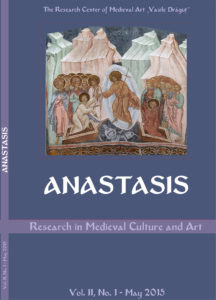
The medieval monachal model is marked out by the faith, by the power, by the morality. It is also shared between confidence and fear with regard to the power on the earth, but, certainly, all the clerks and the monks of the Middle Age know and assume the rule Redde Caesari quae sunt Cesaris and quae sunt Dei Deo. The medieval literature, the unfaithful mirror, is reflected in an incomplete and sometimes idealized way, the example of the hermit, but it constitutes in the essential source of its paradigm. I shall stop to Chrétien of Troyes and to its novels, they are the most glorious proof of the Renaissance of the 12th century
More...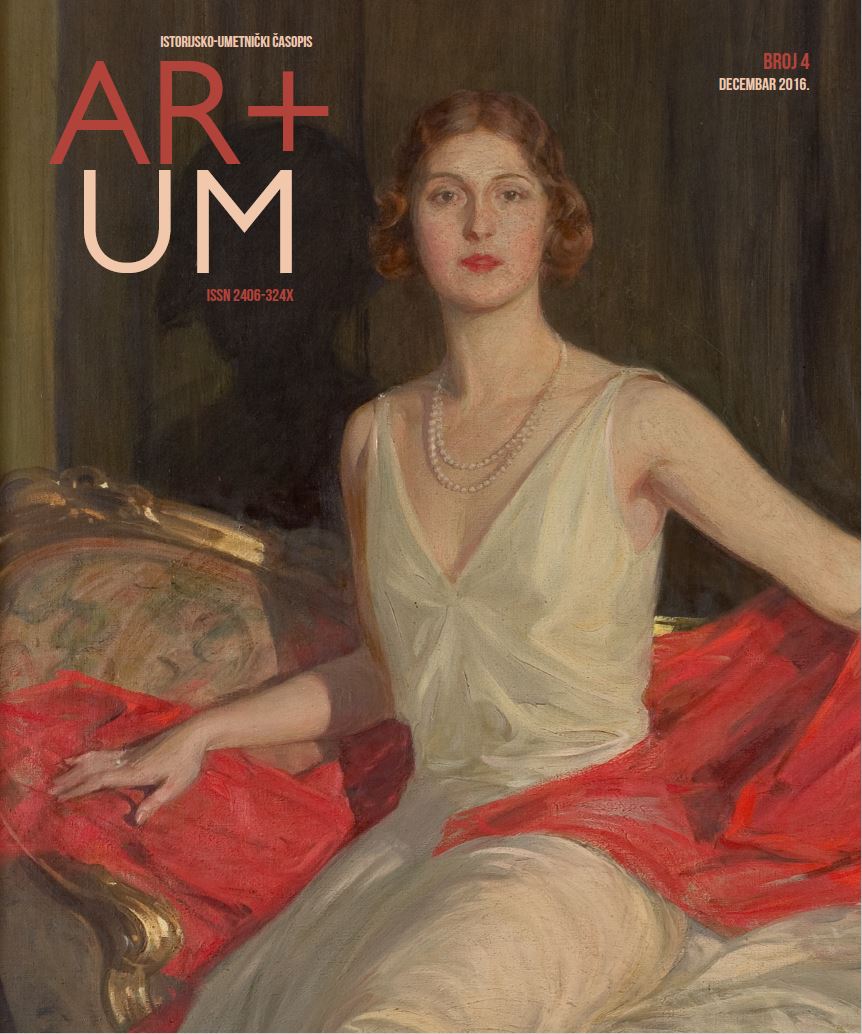
The Proust phenomenon is a psychological mechanism, named after Marcel Proust who was the first one to describe it. One scene in his book In Search of Lost Time defines it perfectly. The main character soaks a madeleine in tea and its taste and smell take him back into his childhood, when he used to have it on Sunday mornings. The memories activated by sensations are highly emotional and personal. They are precious, as one’s personality is consisted mainly of them. It is intangible heritage of an individual and the Proust phenomenon is a way to access it. Above researching the impact of the Proust phenomenon on individuals, this paper also tended to find out if sensations such as smells tend to have similar function on a group of people, those of the same nationality in particular. It turned out that senses are very important carriers of intangible cultural heritage and also take great part in creating national identity. Although the brain remembers literally everything, after some time links to the memories fade away and consciousness fails to take them out. “Proustian” kind of sensation is a “tickle” that wakes up even distant, emotional memories. And those are the kind of memories that equal heritage.
More...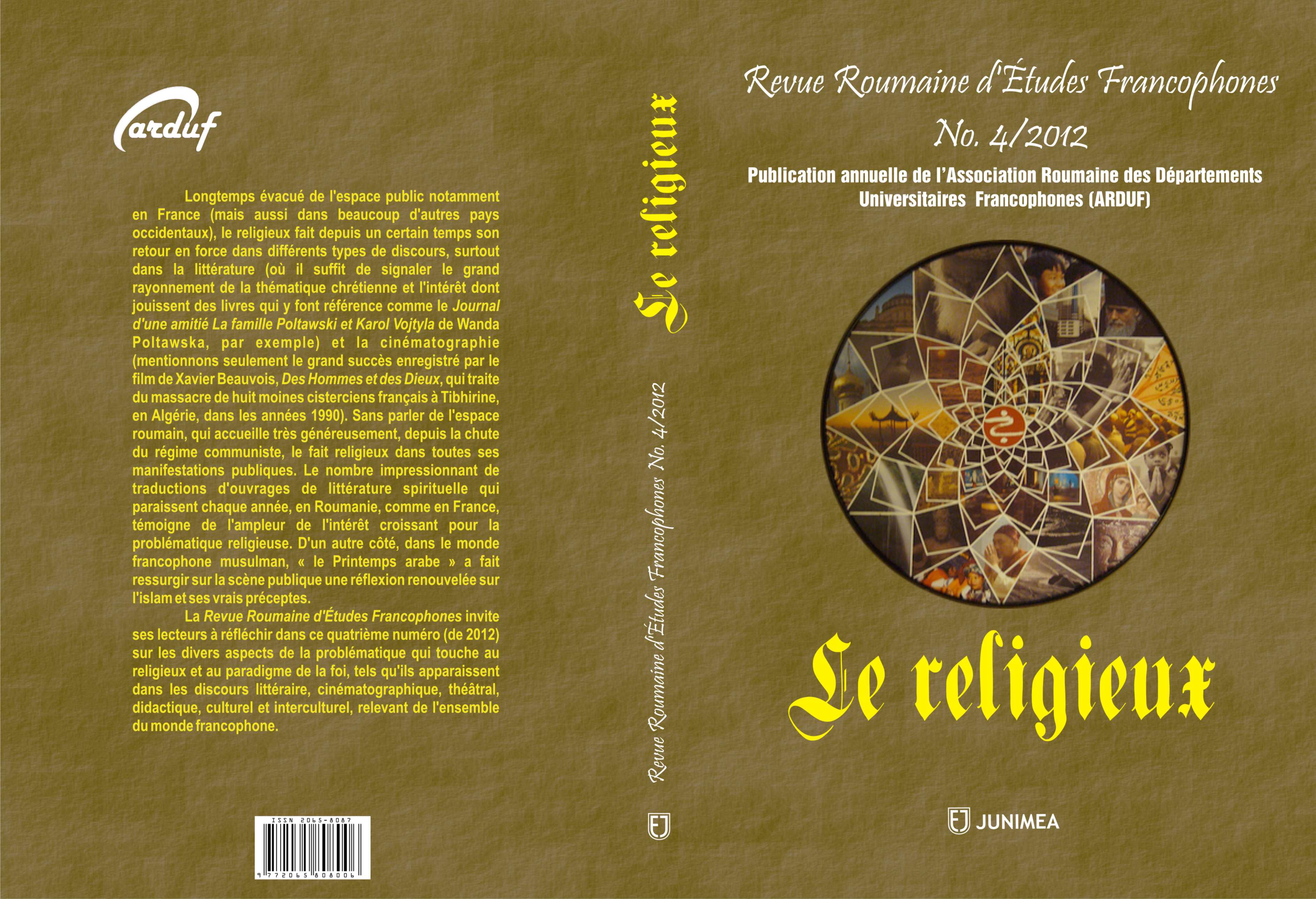
Deeply fascinated by Greek mythology, by pagan African religions and by Eastern light, Rimbaud criticized Western Christians as well as Western modern myths of scientific progress and human brotherhood through his own « Alchemy of the Word ». He never reached, however, a complete detachment from the Christian perspective, which was always a main source of inspiration for his poetry. Through the analysis of his poems and letters, and considering the initiate trajectory of his own life, we invite readers to acknowledge the poet’s intention to renovate Western religion and his own body and soul, in search of Eden, employing both a destructive irony and a creative mysticism, depassing Eros in favor of agapè, Christian love, and finally experiencing a Trinitarian dynamics to lead a life according to theological virtues.
More...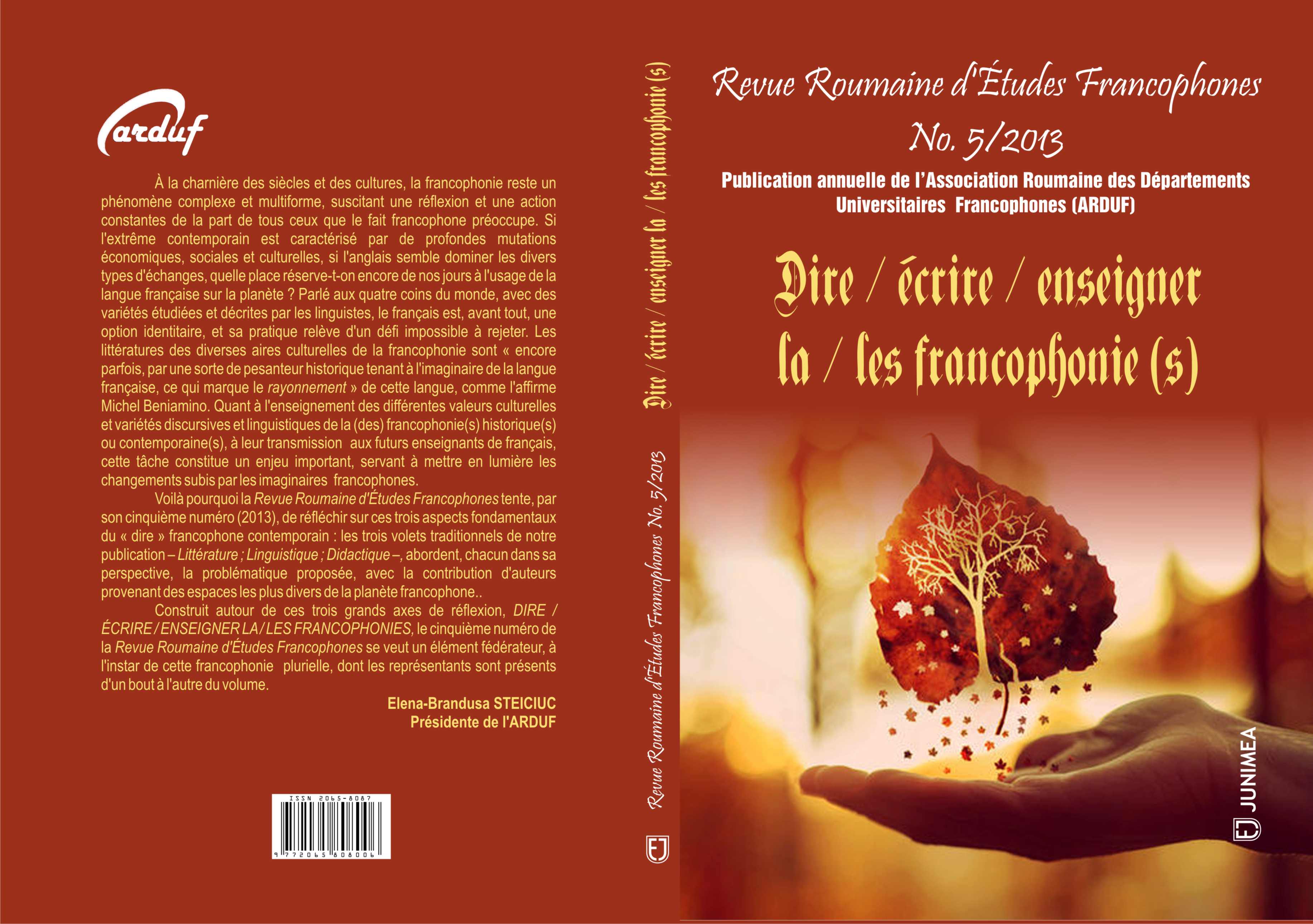
Within the field of French literature worldwide, the literature of Quebec is built as a privileged means for defining the quest of identity and survival in a hostile space/environment as a result of the Anglophone menace and conservatism. The author Anne Hebert illustrates the drama of the people of Quebec in a literary work that facilitates the characters’ escape, always in search of the absolute as a variant of their identity. It is through dream that this escape becomes possible, and the novels Les Chambres de bois et Kamouraska explore it in terms of a sort of premonitory experience as well as a profound descent into the depths of the self in order to assemble the fragments of being. The dream discourse will thus function in Anne Hebert’s works as a way/method of underlying the quest of identity at the level of discourse.
More...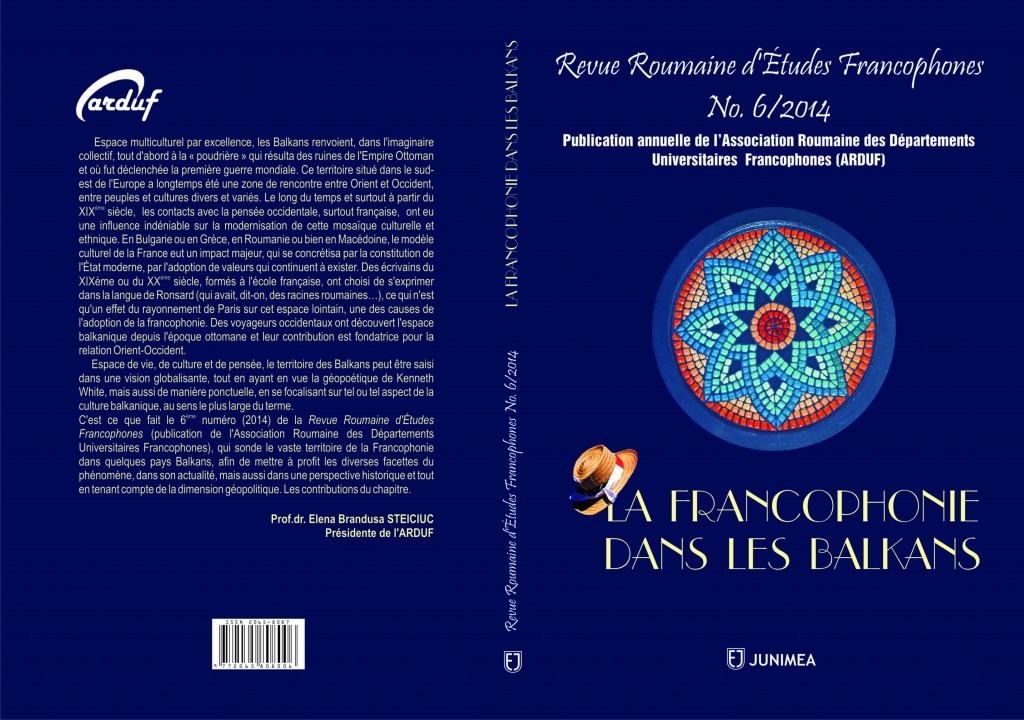
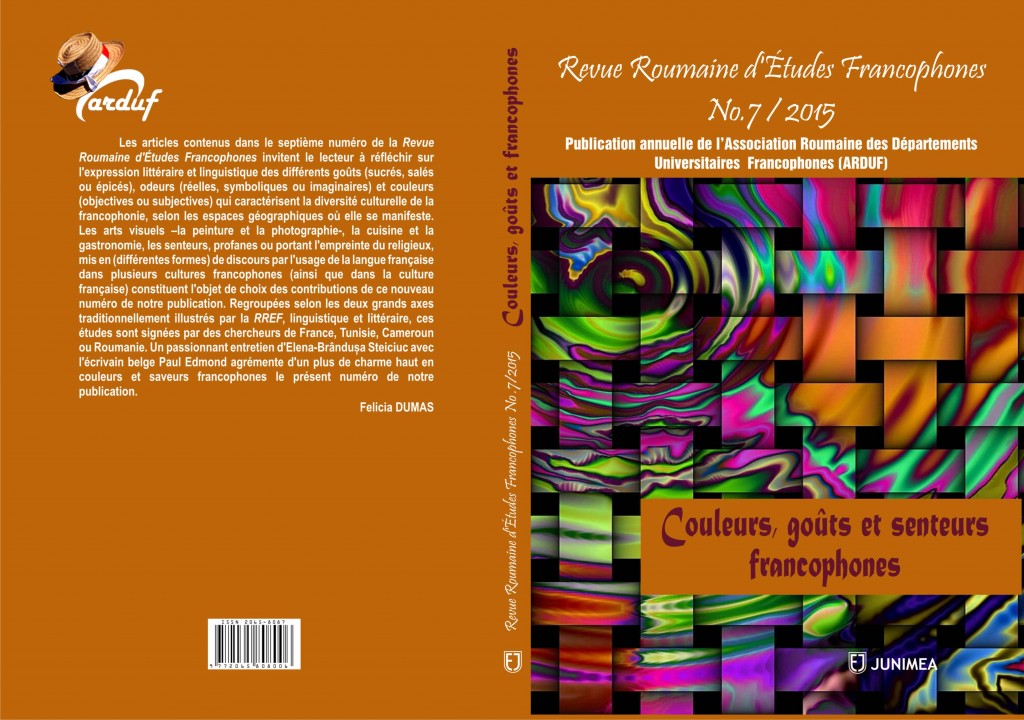
An emblem of the French-speaking world of the Middle Ages, the love potion of Tristan and Ysolt is a literary nexus of sensations ; in Béroul’s Norman romance of the twelfth century, it fuses the powers of wine, of fire, but also of unnameable plants, in a magic proportion meant to last for three years of erotic addiction. The present article aims at analysing the main colours, odours and tastes associated with this fusional experience, as they punctuate the heroes’ evolution from courtly personalities to obscure exiles. The red of criminal blood and of punitive fire, the green of the omnipresent vegetal background, the white of Ysolt’s face in the sunlight, melt into the salty scents and savours of the sea, in a world where water is a landmark as well as a junction of signs. Involuntary natural secretions are relevant to the language of love and fear. It is only when the love drink loses its efficiency that the protagonists recover their free will and decide to leave their oasis of overwhelming natural sensations and invest the cultural environment of the court.
More...
In The Lover, written by Marguerite Duras, the narrator recalls her childhood in Indochina. Firstly, she paints this distant past in black and white, two absolute colors portraying a virtual image that her memory seeks to re-create. "The white child" meets the Chinese with "the black car" at the beginning of the story just to get separated at the end. Their relationship is doomed to failure due to the highly-symbolic chromatic opposition, specially within a colonial society which rejects interbreeding. Between the encounter and the separation, however, bright, vivid, enchanting colors appear, lighting up Saïgon's life. Sensory memory and revived synaesthetic perception of adult women give birth to the child in her, taking the reader through the colors of the passion, the forbidden, and the difference.
More...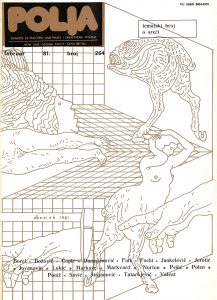
Prustovo delo — ono se zalud primiče ka, neizvesnoj i maskiranoj, budućnosti rukopisa — u celosti je napisano u prošlom vremenu, i može se reći da se, sve u svemu, prezent u njemu nijednom ne pojavljuje, osim, od ostrvca do ostrvca, u rečima koje razmenjivahu, onog dana, onoga prošlog dana, davno-, ličnosti koje, one takođe, bejahu tu, u tom salonu, u tom restoranu, na toj plaži, koje tu više nisu, a tako ni salon, plaža, restoran, njegovi prozori otvoreni prema moru.
More...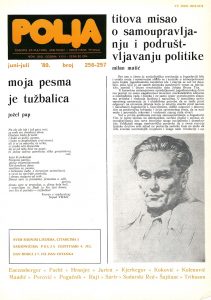
Jedan dinamičan život i bogato književno d filosofsko delo smrti je privela kraju, na način kako to ona čini — ostavila u njemu neka pitanja bez odgovora, ali odmah počela da ga sažima a zaokružuje, učvršćuje njim samim. Zaustavivši sve što se do juče u njemu kretalo, dala mu priliku da se brani od vremena samo sobom.
More...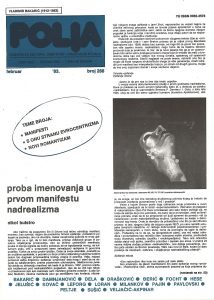
Dok ie u tradiconalnom tumačenju, inspirisanom spisima Getea i Kolridža, Hamlet smatran za tragediju karaktera, šekspirologija naših dana pronaiazi u komadu religioznu dramu čiji opšti doseg prevazilazi slučaj usamljenog danskog kraljevića. Primedba H.D.F. Kitoa da »Hamlet nije središte drame, već da je epicentar«1 ističe originalni i plodonosni karakter ovakve ocene: ukaljanost je sveprisutna u Hamletu, ona čini duhovnu pozadinu, a lična tragedija danskog kraljevića služi pre svega njenom obelodanjenju.
More...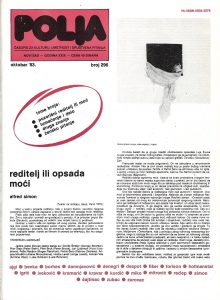
Maldororova pevanja i Pesme jesu, po našem mišljenju, dva čisto satirična dela, dve šaljive fantazije, dve karikature malograđanske gluposti. Izidor Dikas pravi se da pristaje uz ovaj oblik gluposti. U Maldororovim pevanjima vidimo ga kako nosi ulogu plemenitog oca, oca-vrline, oca-istida, dok se u Pesmama prerušava u gimnazijsko čagrizalo koje nepodnošljivo pridikuje. »Pevač« ili »pesnik«, Izidor se postavlja kao branilac pogaženog morala. Za čitaoca Pevanja, on nosi kobno ime Malodoror i uzvišeno prezime grofa de Lotreamona. Kako to daje da se nasiuti njegovo ime, sudibina ili proviđenje hteli su da Maldoror preuzme sve zlo i sav užas za koji su Ijudi kadri; i tako se on, veoma rano, potresen prizorom lošeg ponašanja drugih,
More...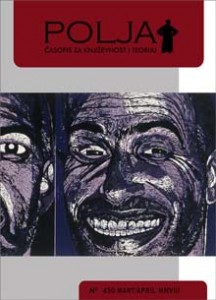
Nedavno sam, za potrebe ovog rada, u knjižari „Galimara” tražio panorame savremene francuske poezije. Objasnio sam knjižaru da tražim preglede savremene francuske poezije (ispostavilo se da ih, takoreći, i nema!), jer spremam za jedan srpski časopis izbor njihovih pesnika. Knjižar me je, najpre, u nekoliko navrata, pitao o kom je jeziku reč, da bi zatim zdušno (i bezuspešno) deset minuta pretraživao po odeljenju za poeziju, u nadi da bismo mogli doći do korisne literature (do poezije sam, na kraju, došao od samih pesnika).
More...
The aim of the present article is to show another type of reading the history of Robinson as it appears in Michel Tournier’s novels. I also have the intention of emphasizing the main orientation of Michel Tournier’s literature, which is to re-write very well-known stories or myths from another perspective. This may be the reason why many critics consider him a re-inventor of the primitive myths. A comparison with Daniel Defoe’s novel allowed me to notice the main changes made by Tournier, among which I have observed the repositioning of the relationship master-servant, a totally different evolution of the character Robinson, and, mostly, the permanent search of a new identity. But the main character seems to be the island considered a symbol of happiness and freedom. Thus, the writer invites us to look for and discover the other island, seen as a symbol of a civilization created by Robinson, a civilization in which the so-called values of the western civilization do not find their place anymore.
More...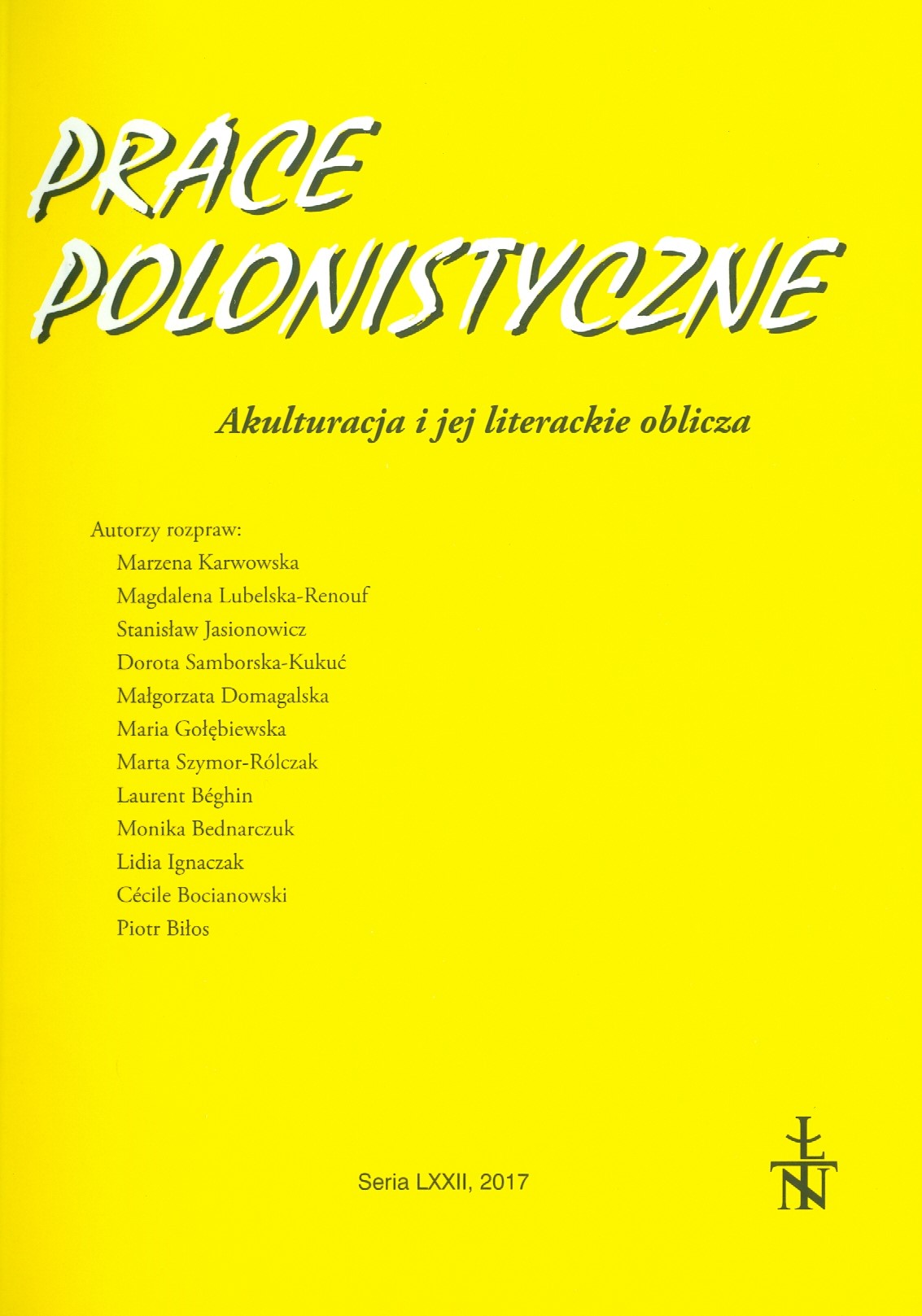
The article deals with the problem of the historical transformation of French and Polishcabaret songs at the turn of the 20th century and the consequent changes in relationsbetween the two cultural circles. The work is focused not only on a comparative analysisof the text and music material from Parisian and Polish cabarets, but also takes intoaccount the sociological context of their functioning. This allows the reader to understandsimilarities and differences in the creation and development of cabaret life in France andPoland. The article analyzes in detail a unique method used to disseminate songs in France(by the societies of singers called les goguettes, les cafés chantants, les cafés-concerts andcabarets) and the absence of such the phenomenon in Poland. It is shown that thesecultural incompatibilities may be one of reasons for the gradual movement of Polishauthors and artists away from the conventional and aesthetic style, adopted initially fromthe Parisian cabarets that were perceived as model ones in Europe (eg. Le Chat Noir orLe Mirliton).
More...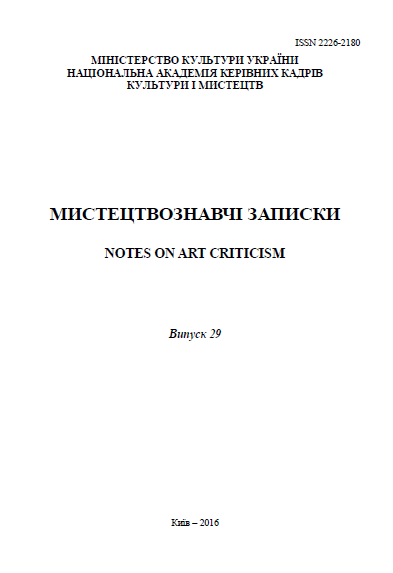
In this paper, based on the biographical method in the context of "mass" and "elitist", the author analyzes the work of Theophile Gautier, the famous French writer, critic, representative of "art for art". Life for representatives of "art for art's sake" is not some category that is subject to beauty. In the framework of art it has a special area. Art exists for itself and justifies its own purpose that bears in itself fine. T. Gautier sets the platform for an elitist art. It is alleged that the writer's works, which combine aesthetic and utilitarian, elite and mass, affecting the human sensibility, form it.
More...
The novelist, dramatist, essayist and scenarist Patrick Modiano is the last one to complete the list of French recipients of the Nobel Prize in Literature in 2014, being appreciated – according to the declarations of the Swedish Academy – for “the art of memory with which he evoked the most abstruse destinies and revealed the universe of the countries under occupation”. In the post-war period, when the heroic myth of the French Resistance during the German Occupation was actively cultivated, Modiano argues with the myths of the ancient France and describes aspects of anti-semitism, collaborationism and their traces. Fragmentation of the approach to topics of national history appears as the emblem of a controversial memory. The importance of Modiano’s novels is emphasized by his having tackled certain aspects of the French Past passed under silence, given that few writers have had the courage to reveal its dramatic authenticity. Within this perverting atmosphere of the Occupation, he brings to the stage marginalized people, traffickers, collaborators, double agents, resistants, characters that stand between betrayal and heroism. The presentation of man in relation to his own memory represents the fundamental ideational feature of the French writer’s vision. Beyond the official history, Modiano imposes himself as a voice of stories and destinies, making them heard against the forgetfulness of the amnesic present. Thus, his poetic consciousness registered, examined, analyzed and interpreted the configuration of this space of fragmentary and conflictual memory, completing it with the interrogations of the present, thus succeeding in surviving through memory.
More...